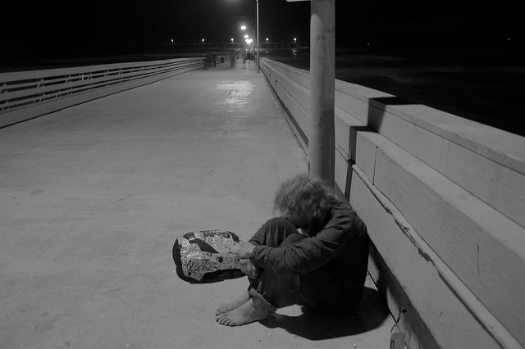
May 30, 2017; Voice of San Diego
A recent article in Voice of San Diego illustrates the problems that can arise when regional strategies to solve a social problem—in this case homelessness or addiction, depending on who you talk to—impose a commitment to one approach. The disagreement between the nonprofit Solutions for Change and the federal Department of Housing and Urban Development (HUD) hinges on what is perceived as the core problem.
Solutions for Change, whose aquaponics farming efforts we wrote about in February of last year, was founded 20 years ago by Chris and Tammy Megison, when transitional housing was considered the best approach. It views homelessness “as a symptom of a primary underlying condition.” It is committed to sobriety for its clients, two-thirds of which “come in battling drug and alcohol issues,” and it has been successful.
HUD, meanwhile has embraced a new approach known as “housing first,” which “encourages groups to focus on finding clients permanent homes instead of temporary housing.” HUD policies further “discourage nonprofits from setting barriers such as sobriety that might keep clients out of their programs.” It instead proposes that clients be “served as they are,” with any addiction problems resolved once they are housed.
Sign up for our free newsletters
Subscribe to NPQ's newsletters to have our top stories delivered directly to your inbox.
By signing up, you agree to our privacy policy and terms of use, and to receive messages from NPQ and our partners.
The disagreement is costing Solutions for Change hundreds of thousands of dollars, as it has chosen to not participate in San Diego’s coordinated entry system for homeless families because this would require it to accept clients who don’t commit to sobriety, thereby foregoing HUD money it has received for years.
Its website says, “It’s not a shelter, transitional housing, or permanent affordable housing. It takes the best of all of those things and wraps it together into one solutions-driven package.” Other services include Solutions University, a multi-pronged, 1,000-day program that offers clients intensive support and job training; and Solutions Family Center, a campus.
Supporters of San Diego’s coordinated entry system, such as Dolores Diaz of the Regional Task Force on the Homeless, whose organization runs the system, say regional cooperation is critical to addressing homelessness. “Sometimes, that means that we have to align our differences of opinion and philosophies.” Further, supporters point “to cost savings and improved outcomes among homeless clients as the reason for all the changes.”
Voices of San Diego writes, “For years, the region’s had a patchwork of conflicting strategies and approaches that have cripple its attempts to tackle homelessness.” It also writes, “Nonprofits like Solutions for Change are being pushed to get on board with a countywide system that would give them less control over who they serve.”—Cyndi Suarez













